These days, meditation is having a moment. With an abundance of apps and images of serene monks meditating for hours, it’s easy to assume meditation is reserved for the ultra-Zen or the ultra-disciplined. But the truth is, you don’t need incense, hours of silence, or a mountaintop retreat to reap the benefits of a meditative mindset. What you do need is awareness—and the willingness to get curious about your own experience.
Let’s bust the myth right out of the gate: Meditation doesn’t have to mean sitting cross-legged in total stillness, clearing your mind of all thoughts. In fact, that’s a pretty advanced version that’s not particularly helpful for the rest of us mere mortals trying to navigate a day filled with distractions, to-do lists, and snack cravings.
The Micro-Meditation Approach to Building a Meditative Mindset
Think of meditation less as an all-or-nothing endeavor and more like micro-moments of awareness you build into your day. Whether it’s taking a pause before reacting to an email, feeling your feet against the ground while waiting in line, or tuning into your breath when things feel overwhelming—those small moments count. That’s meditation, too.
At its core, meditation is simply coming back to yourself. It’s about tuning out the noise of constant mental chatter and tuning in to how your body feels, what your breath is doing, and what’s really going on inside. This kind of awareness isn’t just fluffy mindfulness—it’s foundational for behavior change.
Why Awareness Is Everything
We live in a world that constantly pulls us into reaction mode. And for good reason—our brains evolved to scan for danger and react quickly. But today’s “danger” is usually more about inbox overload than saber-toothed tigers, and the constant reactivity can leave us out of touch with how we actually feel.
That’s where awareness comes in.
By getting curious about what’s going on in your body and mind throughout the day, you start gathering the data you need to make real, sustainable changes. For example, the next time you polish off a family-size bag of chips, instead of spiraling into self-loathing, take a moment to check in: How does it taste halfway through? How does your stomach feel at the bottom of the bag? No judgment—just noticing.
And don’t just notice the “bad” moments. Pay attention when things feel good too—like the energy boost after a fresh salad or the satisfaction of moving your body on a walk in beautiful weather. This awareness of both the helpful and the harmful gives you the full picture.
Meditation as a Tool for Change
The real power of meditation—or awareness, if that word feels more approachable—is that it helps you see the patterns beneath your behavior. That “I want to eat healthier” goal might be in conflict with some deeper, less conscious beliefs—like the fear of missing out, or the idea that healthy equals boring. You can’t shift what you don’t first notice.
Psychiatrist Judson Brewer’s work on habit loops and awareness is a great example. His research shows that even highly addictive behaviors like smoking can be reduced—not by willpower, but by becoming deeply aware of the actual experience of smoking. When people start noticing the unpleasant taste, smell, or feeling, they naturally begin to cut back. That’s the power of a meditative mindset.
Start Simple, Stay Curious
Meditation doesn’t need to be long or fancy. Start with 30 seconds. Try a minute. Sit and breathe. Use an app if it helps. Or don’t. The point is to begin building the skill of awareness—of sitting at the metaphorical train station and watching the trains (your thoughts) pass by without feeling like you have to hop on every single one.
And yes, you’ll occasionally find yourself down the rabbit hole of a thought or worry before realizing you boarded the wrong train. No problem. Just get off at the next stop and come back to center.
A Final Thought on Meditative Mindset and Awareness
Awareness isn’t about being perfect. It’s about being present and not about judging what you find. It’s about collecting data—sensory data, emotional data, thought patterns. You can’t make meaningful change without knowing what’s really going on underneath the surface. And meditation, whether as a dedicated practice or a lifestyle shift toward more presence, is one of the most powerful ways to get there.
So whether you start with a 5-minute breathing session or just check in with yourself before your next snack, remember: This is all just information. And that information is gold when it comes to becoming the version of yourself you’re working toward.
You don’t need to do it perfectly. You just need to notice.
Listen to the full episode of my podcast on this topic below.
Save for later—Pin This Post!
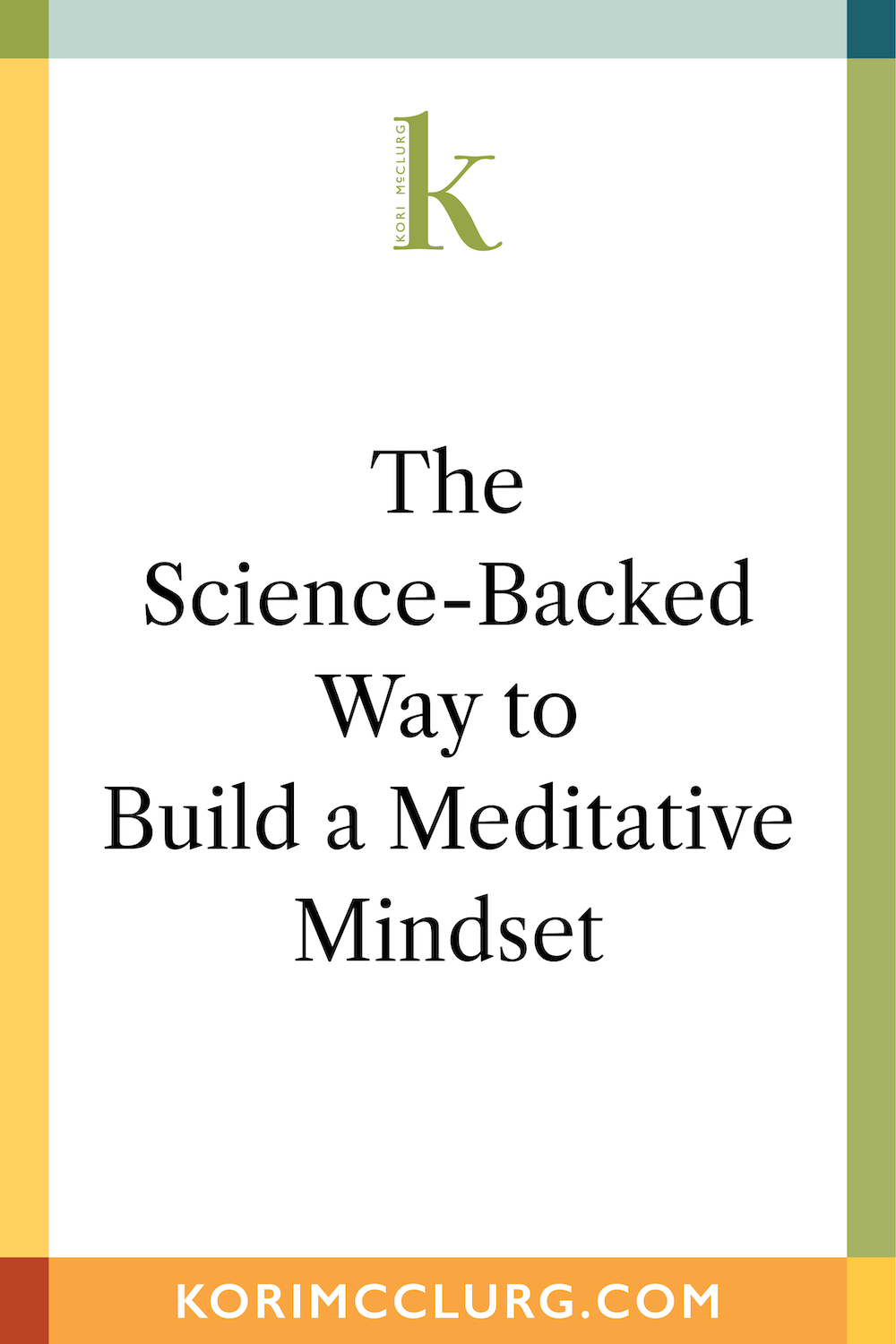
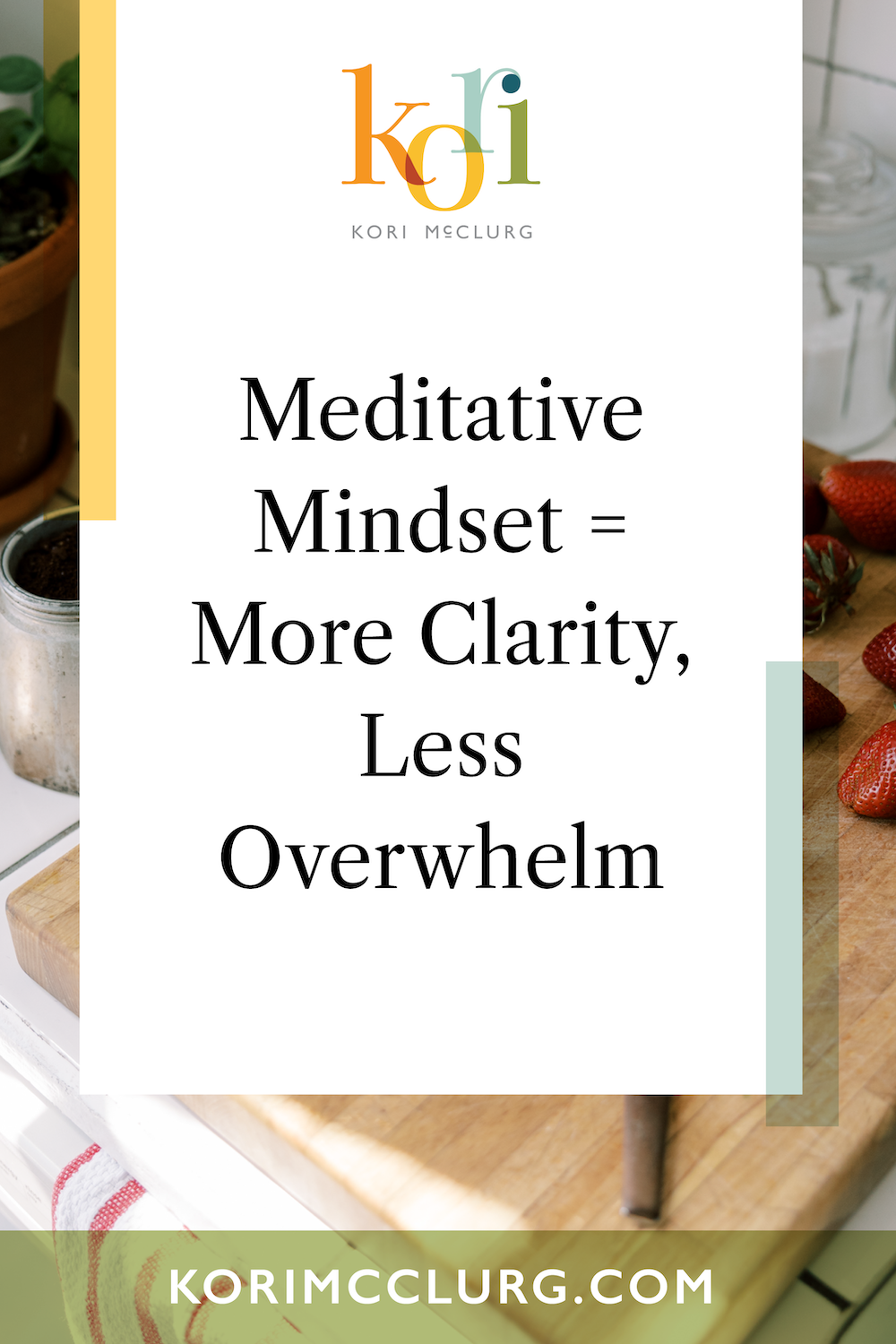
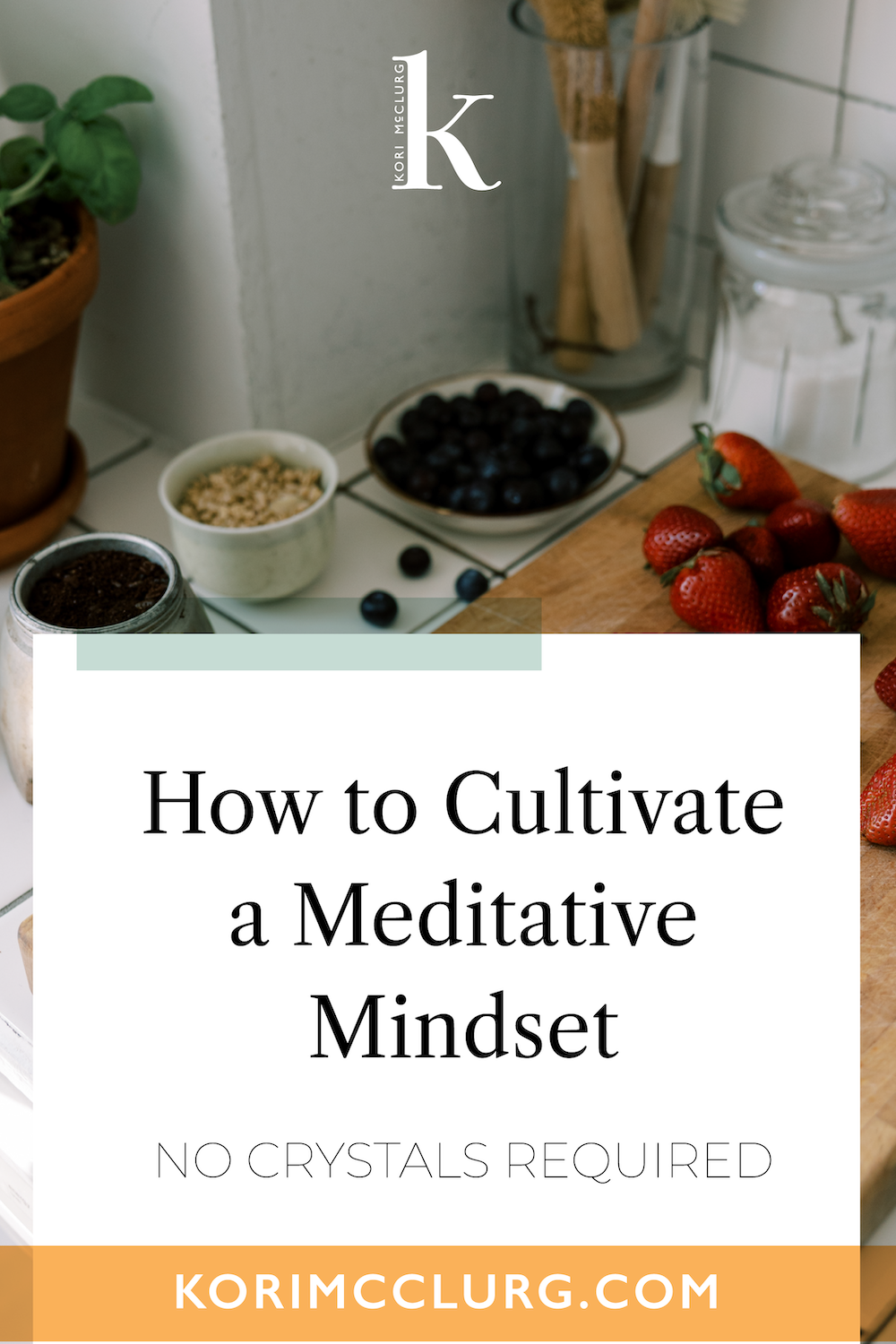
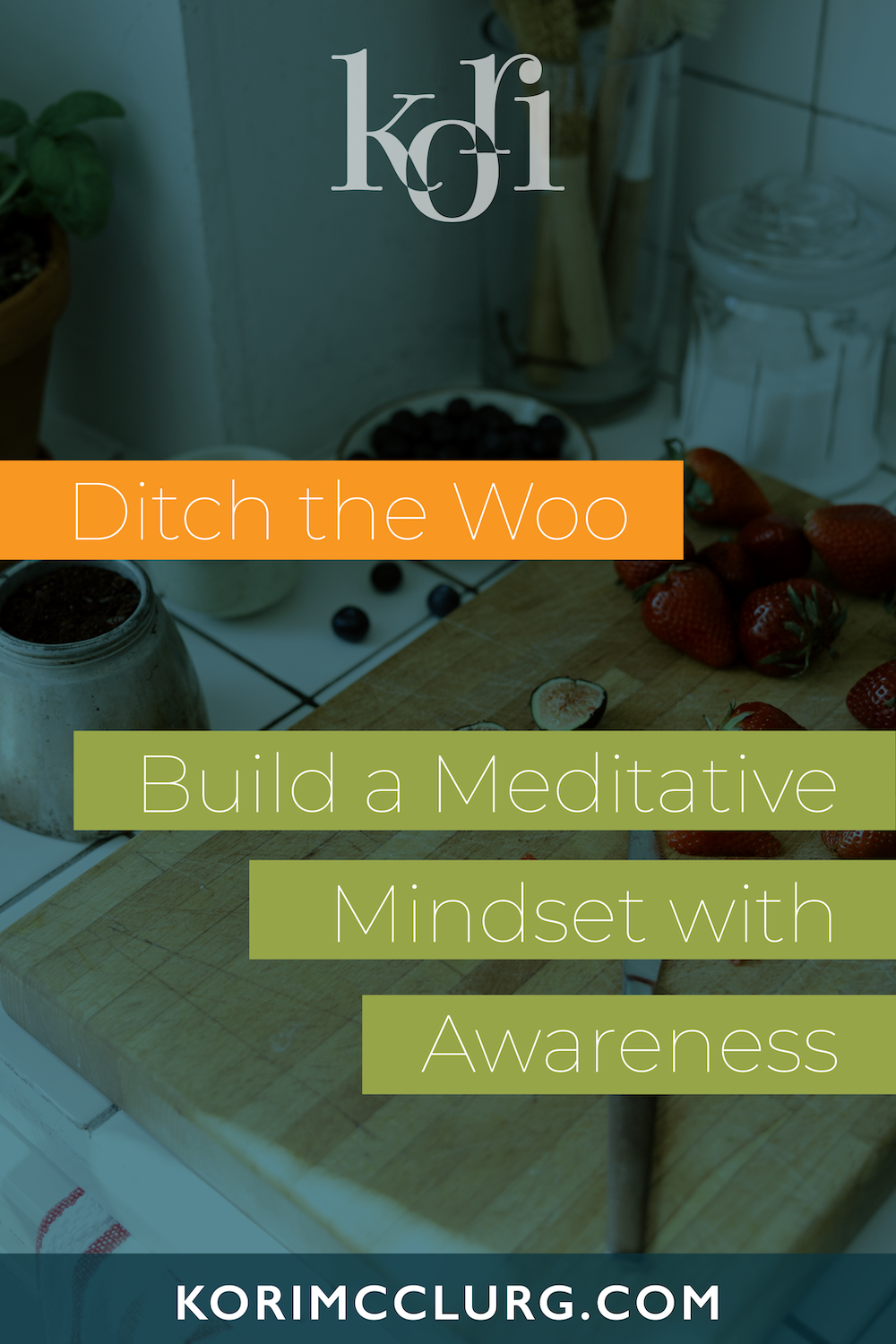
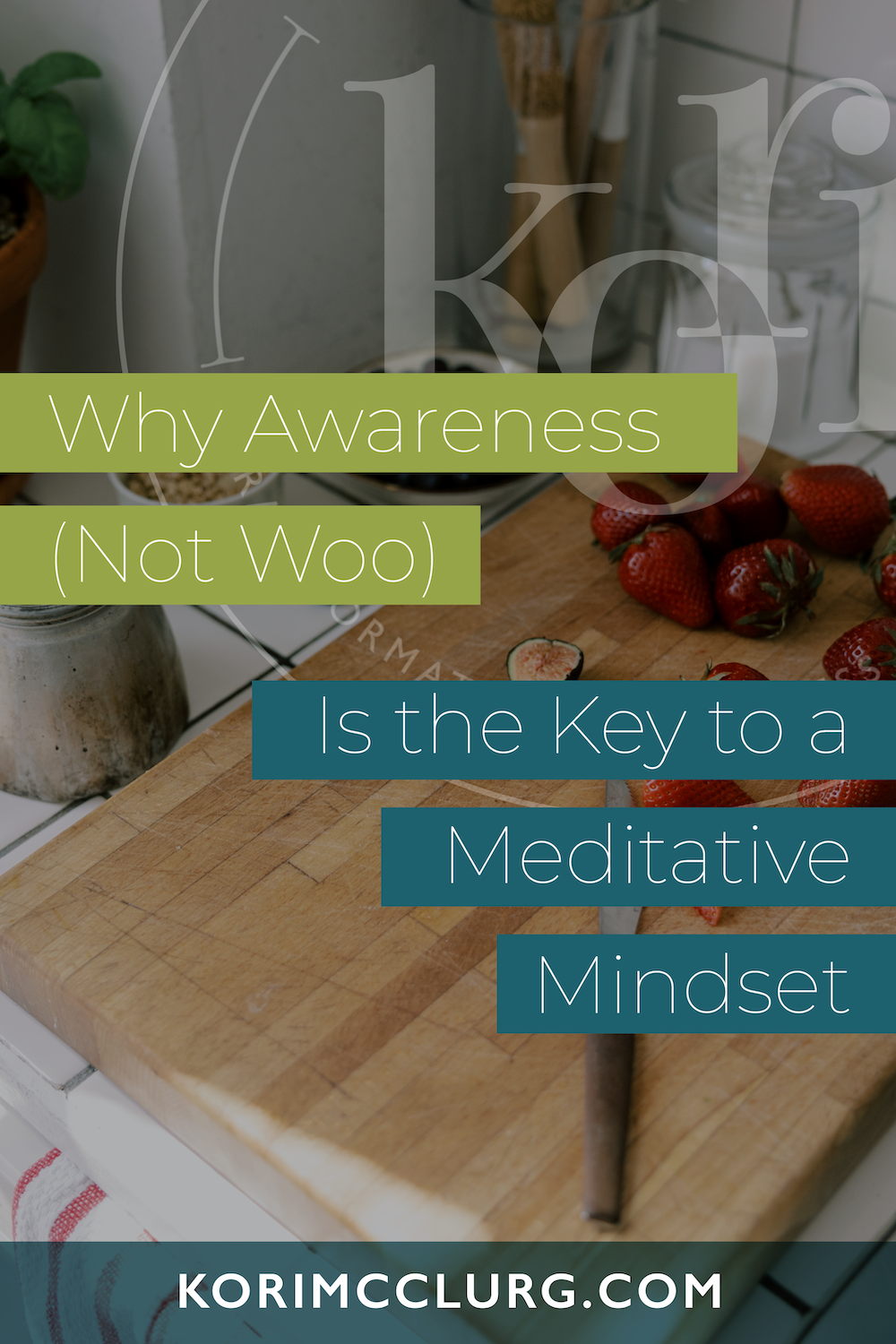
If you liked this post, check out these too:
May 12, 2025
All content ©Kori McClurg 2025
Branding & Site Design by Moriah Riona Branding
All content ©Kori McClurg 2025